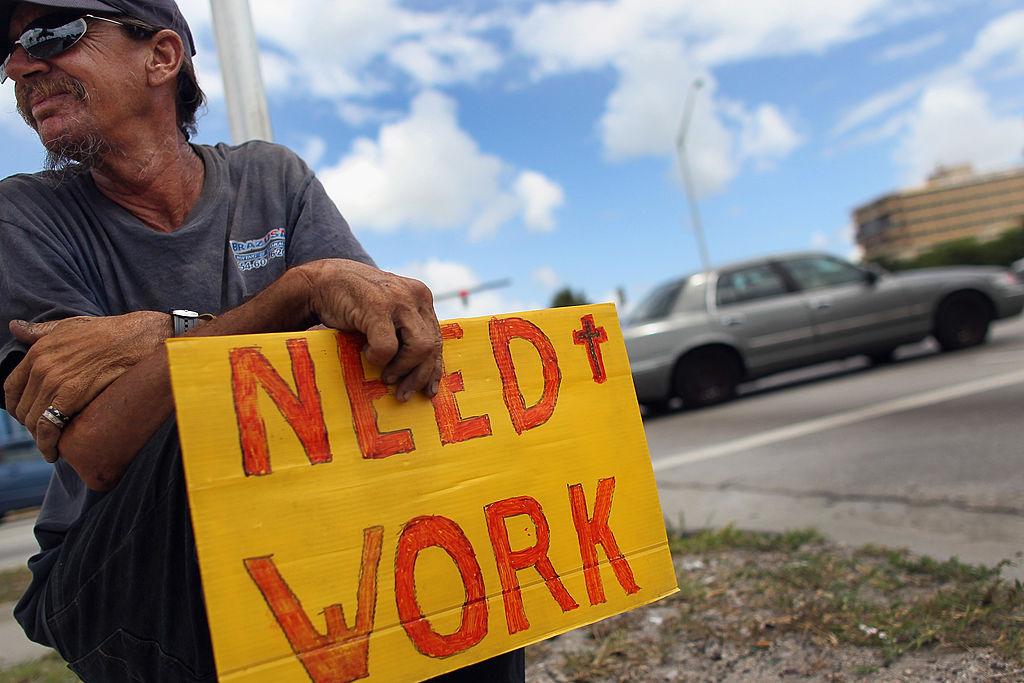The Odds of a Recession Rise Amid News of Walmart's Job Cuts
There's been a flurry of layoffs in 2022. Now, Walmart, the largest employer in the U.S., is also laying off employees.
Aug. 4 2022, Published 3:05 a.m. ET

We're into the second quarter earnings season now, and almost all companies are saying that they're realigning their business for a growth slowdown. Many companies, including FAANGs, are cutting down on hiring. There's been a flurry of layoffs as well, and now, Walmart, the largest employer in the U.S., has announced it's laying off employees.
Since World War 2, the U.S. economy has always entered into a recession whenever the GDP has contracted for two consecutive quarters, which has happened this year.
What makes for a recession?
A White House blog post ahead of the Q2 GDP report was seen by many to change the definition of a recession. The U.S. economy contracted in both the first and second quarters of 2022, meeting the widely accepted definition of a recession. However, the NBER’s (National Bureau of Economic Research) Business Cycle Dating Committee, which officially determines if there's a recession in the country, doesn't use this definition.

Instead, the NBER looks at industrial production, consumer and business spending, and the job market, and call a recession when economic activity declines for “more than a few months.” Although it hasn't officially seen this yet, the GDP decline, falling bond yields, and yield curve inversion all suggest a recession is impending.
These companies are laying off employees
The list of companies laying off employees is growing by the day. Mortgage companies are among the worst affected, but the layoffs are spread across industries: Tesla, Netflix, Coinbase, Carvana, Peloton, Better.com, Amazon, Microsoft, Shopify, Oracle, PayPal, and Robinhood are all laying off employees.
Walmart's layoffs in 2022 will target corporate employees
Walmart has confirmed to several media outlets that it's laying off employees, but has also said that it will continue to hire in e-commerce, supply chain, and ad sales. In July, Walmart lowered its profit guidance and warned of a slump in sales of discretionary products. That warning sent stocks of other retail and e-commerce companies downward.
The Wall Street Journal put the number of affected Walmart employees at 200, which is a fraction of the retailer's total U.S. workforce of 1.6 million. However, the layoffs do indicate that U.S. companies are changing their hiring priorities after two years of strong growth.
Why are U.S. companies laying off workers?
The GDP has declined, and invariably, a slowing economy leads to job losses. Furthermore, companies that benefited from stay-at-home trends, such as Shopify, Amazon, Peloton, and Netflix, overhired during the pandemic, believing that the high growth would continue. Amid the turmoil in equity and crypto markets, there have been layoffs at cryptocurrency and brokerage companies as well. Inflation has also reduced consumers' disposable income, meaning they're spending less on discretionary goods.

Rising job losses increase the odds of a U.S. recession
Economists sometimes look to the U.S. job market to confirm the possibility of a recession. The job market is deteriorating and jobless claims are high. Amid the high worker demand and shortages of the last two years, companies added inventory and hired as much as they could. Now, with the economy in a downturn, companies are saddled with excess inventory and more workers than they need.
Whereas some companies are slowing down their hiring, banking on attrition to lower their workforce, others have resorted to layoffs. As layoffs mount, we could see a domino effect in the economy amid the Fed rate hikes, raising the odds of a U.S. recession.
